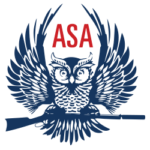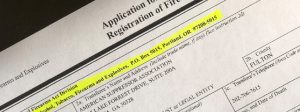Montpelier, VT – On January 26th, Rep. Doug Dubitsky (R-47) introduced House Bill 5522. This legislation, which has been referred to the Joint Committee on Environment, seeks to legalize the use of suppressors while hunting. If enacted, HB 5522 will bring Connecticut in line with the 40 states that currently allow hunters to use suppressors in the field.
Of the 42 states in which suppressor ownership is legal, Connecticut and Vermont are the only two that do not allow for their use in the field. Similar legislation, Rep. George Till’s (D – Chittenden) H.5, has been introduced in the Green Mountain State.
According to multiple peer reviewed studies, between 70 to 80% of hunters never wear traditional hearing protection devices like earplugs or earmuffs while in the field. As a result, Dr. William W. Clark, Director of the Washington University School of Medicine’s Program in Audiology and Communication Sciences, asserts, “the most serious threat to hearing comes from recreational hunting or target shooting”.
The sound pressure level (SPL) of most unsuppressed hunting rifles range between 160 to 185 decibels (dB). At these levels, even earplugs and earmuffs are often incapable of providing complete protection. In a letter addressed to the American Suppressor Association, the National Hearing Conservation Association (NHCA) states:
“Persons wearing conventional hearing protection are not without risk of NIHL when using firearms. The noise reduction of hearing protection devices varies considerably across users and may provide significantly less protection from noise than the labeled noise reduction rating (NRR) suggests...However, using conventional hearing protection in conjunction with a suppressor can significantly reduce the risk of NIHL more than using either device alone…Therefore, NHCA supports the use of firearm noise suppressors as a form of an engineering noise control to reduce hazardous firearm noise exposures.”
Hollywood’s depiction of suppressors might be entertaining, but it has no basis in reality,” said Knox Williams, Executive Director of the American Suppressor Association. “What is real is that hearing loss related to recreational firearm use is a widespread issue that suppressors can help fix. We applaud Representative Dubitsky for his efforts to help protect the hearing of the hunters in the great state of Connecticut, and look forward to working together to ensure that future generations of sportsmen and women in the Constitution State are able to more effectively protect their hearing while in the field.”
There are many benefits to using a suppressor, including:
- HEARING PROTECTION: Noise induced hearing loss and tinnitus are two of the most common afflictions for recreational shooters and hunters. Everyone knows that gunfire is loud, but very few people understand the repercussions that shooting can have on their hearing until it’s too late. Suppressors reduce the noise of a gunshot by an average of 20 – 35 dB, which is roughly the same as earplugs or earmuffs. By decreasing the overall sound signature, suppressors help to preserve the hearing of recreational shooters, hunters, and hunting dogs around the world.
- SAFER HUNTING: Most hunters do not wear hearing protection in the field because they want to hear their surroundings. The trouble is, exposure to even a single unsuppressed gunshot can, and often does, lead to permanent hearing damage. Suppressors allow hunters to maintain full situational awareness, while still protecting their hearing. The result is a safer hunting experience for the hunter, and for those nearby.
- NOISE COMPLAINTS: As urban development advances into rural areas, shooting ranges and hunting preserves across the country are being closed due to noise complaints. Although it can still be heard, suppressed gunfire helps mitigate noise complaints from those who live near shooting ranges and hunting land.
- ACCURACY: Suppressors reduce recoil, and help decrease muzzle flinch. These benefits lead to improved accuracy, better shot placement, and more humane hunts.
Although legal in 42 states, suppressors have been federally regulated since the passage of the National Firearms Act of 1934. Currently, prospective buyers must send in a Form 4 application to the ATF, pay a $200 transfer tax per suppressor, undergo the same process that is required to purchase a machine gun, and wait months for ATF to process and approve the paperwork. In stark contrast, many countries in Europe place little to no regulations on their purchase, possession, or use.
About The American Suppressor Association
The American Suppressor Association (ASA) is the unified voice of the suppressor community. We exist for one reason and one reason only: to fight for pro-suppressor reform nationwide.
The ability of the American Suppressor Association to fight for pro-suppressor reform is tied directly to our ability to fundraise. Since the ASA’s formation in 2011, 3 states have legalized suppressor ownership and 18 states have legalized suppressor hunting. Much of this would not have happened without your support. For more information on how you can join us in the fight to help protect and expand your right to own and use suppressors, visit www.AmericanSuppressorAssociation.com.










